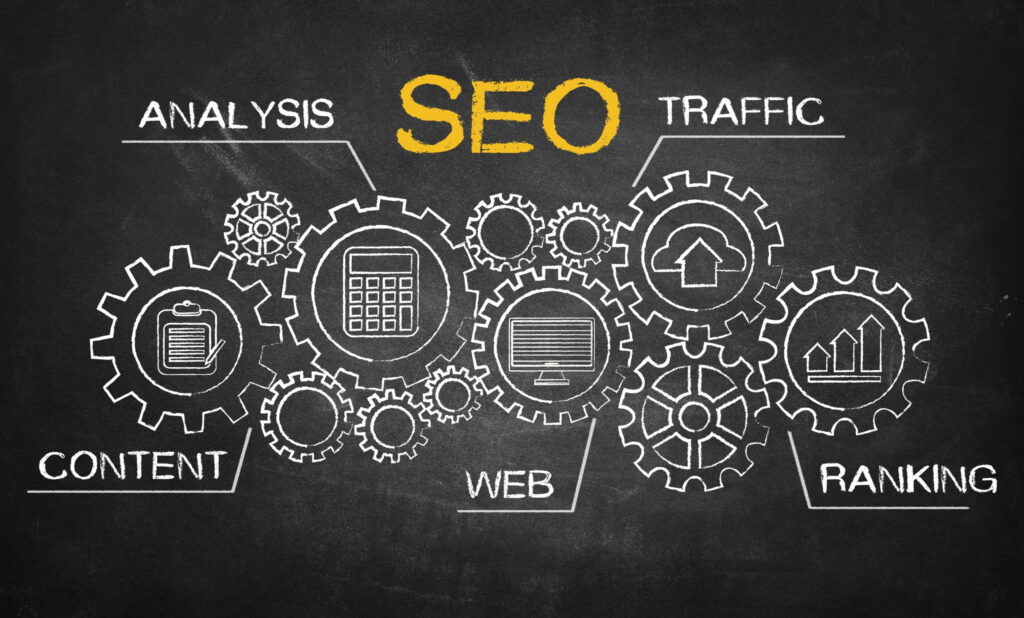Search Engine Optimization (SEO) plays a vital role in driving traffic to your website and ensuring its visibility on search engines like Google. In today’s highly competitive digital landscape, having a website alone is not enough. You need to optimize it to rank higher on search engine results pages (SERPs) so potential customers can find you easily. But why is SEO so important, and what exactly does it take to implement an effective SEO strategy? Let’s explore.
Why SEO is Crucial for Your Website’s Success
1. Increased Visibility and Traffic
The primary reason SEO is essential is that it increases your website’s visibility. When someone searches for a product or service related to your business, you want your website to appear as one of the top results. The higher your site ranks, the more likely people are to click on it. SEO helps you reach your target audience by optimizing your content and website for relevant search queries.
2. Builds Credibility and Trust
Websites that rank higher on search engines are often viewed as more trustworthy and credible by users. People tend to trust Google’s algorithms to display the most relevant and reliable results. By optimizing your site, you can build authority in your niche, making it easier for customers to trust your brand.
3. Improves User Experience
A well-optimized website offers a better user experience. SEO isn’t just about keywords and content; it also includes optimizing the site’s speed, mobile-friendliness, and navigation. A smooth, easy-to-use website ensures visitors stay longer, explore more, and are more likely to convert into customers.
4. Cost-Effective Marketing
Compared to paid advertising, SEO is relatively cost-effective. While SEO may take time to show results, its long-term benefits are invaluable. Unlike paid ads, where traffic stops when you stop paying, a well-optimized site continues to bring in organic traffic for months or even years.
5. Gives You a Competitive Edge
If your competitors are investing in SEO and you aren’t, you’re likely falling behind. A strong SEO strategy helps you stay competitive in your industry by ensuring that your website ranks alongside—or even above—competitors for relevant search terms.
What Does SEO Involve?
SEO isn’t a one-time effort; it requires ongoing work across several key areas. Here’s what an effective SEO strategy involves:
1. Keyword Research
Keyword research is the foundation of SEO. It involves identifying the search terms and phrases your target audience is using to find products or services like yours. These keywords need to be incorporated naturally into your website’s content, meta descriptions, and headings.
2. On-Page SEO
On-page SEO refers to optimizing individual web pages to rank higher in search results. This includes:
- Optimizing title tags and meta descriptions
- Using headers (H1, H2, etc.) to structure content
- Incorporating keywords naturally
- Improving internal linking
- Ensuring content is engaging and relevant to the user
3. Technical SEO
Technical SEO involves optimizing the backend structure of your website. This includes:
- Improving site speed
- Ensuring mobile-friendliness
- Creating an XML sitemap
- Fixing broken links or 404 errors
- Implementing structured data (schema markup)
4. Off-Page SEO
Off-page SEO is all about building authority and credibility outside of your website. The key aspect of off-page SEO is link building, which involves obtaining backlinks from other reputable websites. Social media engagement, guest blogging, and online reviews also contribute to off-page SEO.
5. Content Creation
Content is king in SEO. Creating high-quality, informative, and engaging content not only helps with keyword optimization but also encourages users to spend more time on your website. This can lead to more backlinks, higher engagement rates, and ultimately better rankings.
6. Local SEO
For businesses with a physical presence, local SEO is essential. This involves optimizing your Google My Business profile, ensuring your business information is consistent across online directories, and using location-based keywords.
7. Analytics and Continuous Improvement
SEO is not a one-time effort; it requires constant monitoring and updating. Tools like Google Analytics and Search Console can help track the performance of your SEO efforts, allowing you to make data-driven decisions to improve your strategy.
Conclusion: Why You Can’t Afford to Ignore SEO
In today’s digital-first world, SEO is no longer optional—it’s essential. It helps your website gain visibility, drive traffic, and build trust among potential customers. While it requires ongoing effort in areas like keyword research, on-page optimization, and content creation, the long-term benefits make it one of the most effective and sustainable marketing strategies.
By investing in SEO, you’re investing in your website’s future success. So, whether you’re just starting out or looking to improve your existing online presence, focusing on SEO is a must.



